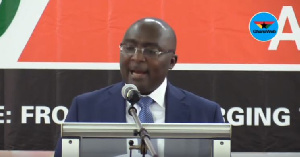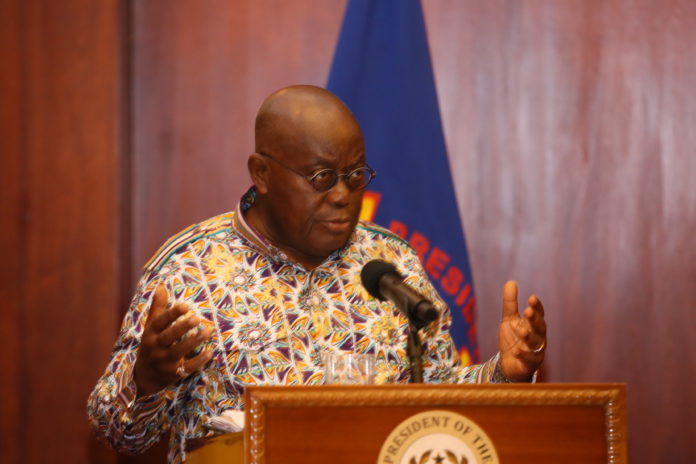21 people being prosecuted for financial infractions – Bawumia reveals

Vice President Dr. Mahamudu Bawumia on Friday said the government is putting effective administrative systems and strengthening anti-graft institutions in the quest to combat corruption in the country.
In view of that, he said, 21 persons were undergoing trial for misappropriation of public funds and assured of government’s commitment to supporting such prosecutions no matter the political affiliation of those persons.
The law must take its course in matters of misappropriation of public funds, he said, and called for effective collaboration between anti-graft institutions such as the Economic and Organised Crime Office, Financial Intelligence Unit, Criminal Investigations Department of the Police Service, civil society and Ghanaians to provide relevant information and clues to protect public purse.
He gave the assurance that the Government would continue to strengthen public institutions through the provision of adequate resources and improve administrative systems to deter people from engaging in corrupt practices.
Vice President Bawumia said this at the maiden public lecture organised by Occupy Ghana and Audit Service to commemorate the landmark judgment by the Supreme Court in a case between Occupy Ghana versus Attorney-General.
The Supreme Court ruling on June 14, 2017, compelled the Auditor-General to disallow and surcharge public officials for misappropriation of public funds.
The landmark ruling enabled the Auditor-General to disallow the payment of GHc5.4 billion, which was presented as claims by Ministries, Department and Agencies, while some public servants were surcharged for various financial infractions.
“From surcharging to safeguarding: Next steps in the fight to protect the public purse” was the theme for the lecture, which attracted representatives from civil society organizations, the academia, public servants, policy-makers and the public.
Vice President Bawumia said the historic ruling had given a strong foundation to combat corruption towards ensuring greater accountability and transparency, noting that, failure by the Auditor-General to enforce the law would be detrimental to the socio-economic wellbeing of the nation.
He noted that over the years, there had been various interventions to fight corruption by various regimes including whipping of offenders and citizen vetting while others were jailed or killed.
However, he said those procedures failed to adequately address the canker, hence, the Akufo-Addo’s administration upon assumption of office in 2017, had been leveraging on technology fight corruption.
He said government embarked on public sector reforms and implemented some digital infrastructure to improve the ease of doing business and accessing public services including the introduction of e-business registration at the Registrar-General’s Department, smart-driver’s license at the Driver and Vehicle Licensing Authority, paperless port system, e-justice system, national digital property address system, mobile money interoperability system, ongoing online registration of land records and the national identification system.
By the end of this month, he said, government would introduce “No Duty, No Exit” Plan at the ports, which would prevent containers from getting missing or stolen, while the “First Port Rule” that would enable Mali and Burkina Faso tax officials to set up desks in the country’s port to collect duties had reached advance stage towards its implementation.
Vice President Bawumia was of the conviction that that ‘soft infrastructure’ would help in integrating all public data into a central database and reduce human interface in accessing public services and aid the fight against willful spending and theft.
More so, the government was standardizing designs for the construction of roads, hospitals and public schools, which would end the variation in quotations of such facilities and ensure value for money.
Source: citinewsroom.com





